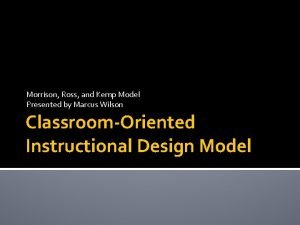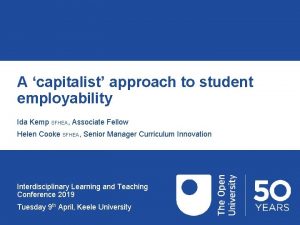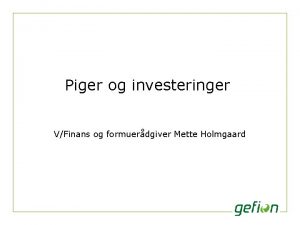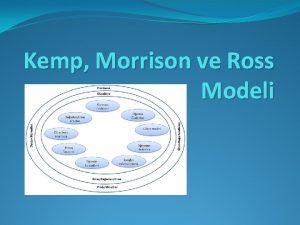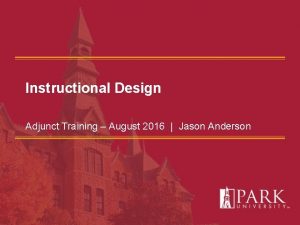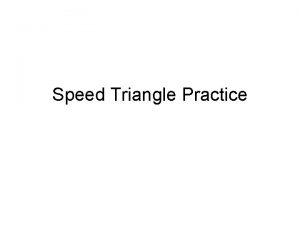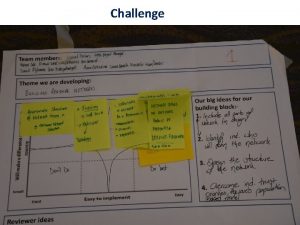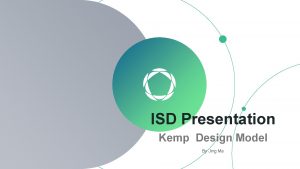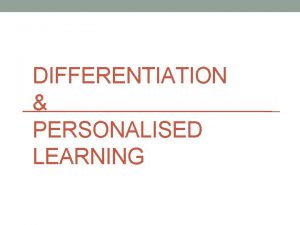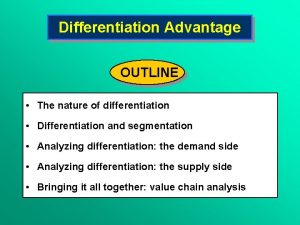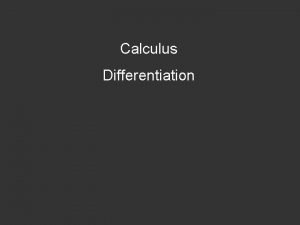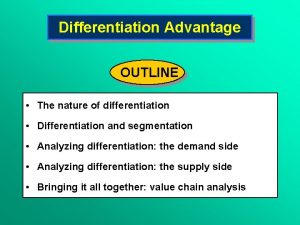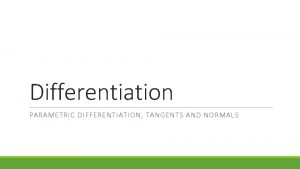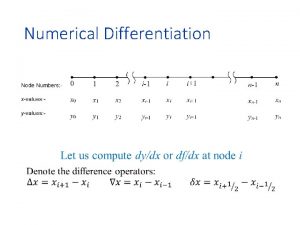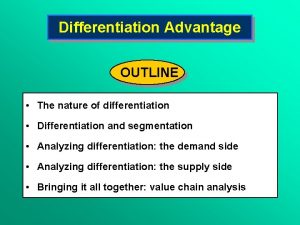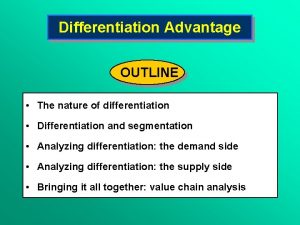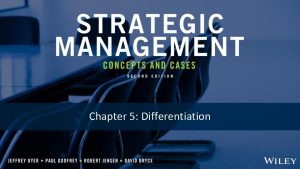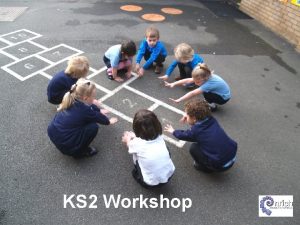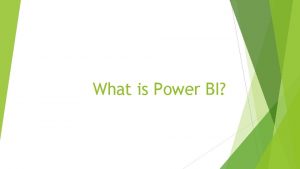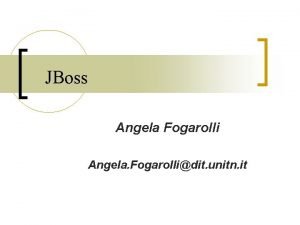Challenge Differentiation NQT Federation Workshop Angela Kemp LA























- Slides: 23

Challenge & Differentiation NQT Federation Workshop Angela Kemp LA AST for G&T Education Judith Weaver AST for Science Gifted & Talented Co-ordinator kp@holt. wokingham. sch. uk Wv@holt. wokingham. sch. uk

Aims What is challenge & differentiation? What are the key building blocks to challenge? How can we get challenge into our classrooms?

Core Values for Stretch & Challenge � ‘A rising tide lifts all ships’ � Integral with good teaching � Part of the remit for all teachers � No special ‘extra’ resource required, just good pedagogy � Strategies for increasing challenge are generic � Learning dynamic is personalised and

What happens if we are not challenging our students? Coast Don’t take risks- Passive thinker Don’t push themselves-Passive learner Quiet = Underachievement Bored and act up =Underachievement

Building Blocks to Creating Challenge in your Classroom

Stimulus Material The more able the student, the more complex the stimulus material can be. eg. Advanced magazines/newspaper articles, video footage or textbook Questioning The more able the student the higher the level of questioning - to foster higher order thinking, develop imagination, creative thinking and pitch challenge Depth/breadth The more able the student, the more comfortable they are studying a topic in greater depth and/or breadth eg. taking the learning beyond the general to the specific and vice versa, to deepen learning and uncover underlying principles, making links to other topics and subjects. Setting tasks Adapted from B Brin & S Craven Task Challenge The more able the student, the greater the ability to deal with high level tasks. Eg. Thinking skills, enquiry, mystery, & P 4 C 6 main types of differentiation that are the most useful for stretch and challenge Pace The more able the student the greater the capacity to work swiftly & purposefully – taking on broad new concepts readily & with ease. eg. Through a set of ideas presented by the teacher, some independent thinking or their own work Independent Learning The more able the student the greater their capacity to work without the constant attention of the teacher. The emphasis is on learner autonomy, with decisions and judgments' made by the learner on such matters as the setting of deadlines, allowing the teacher to set increasingly open ended and less prescriptive tasks.

SYNTHESIS EVALUATE ANALYSIS (CREATE) (JUDGE) (RELATIONSHIPS) • Create • Give an opinion • Categorise • Compose • Judge • Compare and contrast • Invent • Rate from best to worst etc. • Alike and different • Hypothesise • Choose • Cause and effect • What would happen if? • Recommend • Relevant and irrelevant • Design • What could be done differently? • Find fallacies • Be original • Fact and opinion • Combine from several sources APPLICATION (USE) Use what you have learnt in another situation or place KNOWLEDGE AND COMPREHENSION • Tell • Find or locate • Describe in your own words • Name BLOOM’S BUILDING BLOCKS

How did you challenge your students today ? http: //www. online-stopwatch. com/bomb-countdown/full -screen/

Get them Active! Ideal Flexible thinkers Active ATTITUDE TO THINKING Passive But lack motivation Not keen & motivated Spoon fed thinkers Work hard but are spoon fed by us! Passive ATTITUDE TO LEARNING ve Acti

Classroom Tools to Promote Active Thinking & Challenge Strategies to develop a deeper understanding

Breadth & Depth To deepen learning and uncover underlying principles, making links to other topics and subjects.

Patchwork Thinking Generate 16 words from the class on their current topic. � Write words on Post Its or cards � Arrange in a 4 X 4 pattern on desk � Challenge 1: Arrange the cards so that each one is similar in some way to the card next to it on the left & right. Challenge 2: arrange so that each is now linked also to the one above and below Challenge 3: (for most able) arrange the cards so that they are all logically linked with the cards that touch their corners as well.

6 x 6 grid Roll the dice twice to decide which 2 words you need to try to link If the student can link the 2 words then they colour them in. If they cannot link the words then they cannot colour them in The winner is the student who colours in the most words in their colour

Questioning To promote learning, foster higher order thinking, develop imagination, creative thinking and pitch challenge

Quiz-Trade Students quiz a partner, get quizzed by a partner, and then trade cards to repeat the process with a new partner The teacher prepares a set of question cards for the class, or each student creates a question card

Questioning Ladder � Read the text provided http: //www. onlinestopwatch. com/bombcountdown/full-screen/ � Start at the bottom of the ladder and try to come up with questions that fit the ladder. � Pass your questions to the next group � Receiving groups try the questions and then write a comment next to each question e. g We liked this one because. . . ; We found this one difficult because. . . relevant/irrelevant; made us think/didn't make us think

Stimulus Material The more able the student, the more complex the stimulus material can be eg. Advanced magazines/newspaper articles, video footage or textbook

How does this object link to today’s INSET? Challenge

A Question of…… Hurricanes 1 2 3 4 5 6 7 8 9

Thinking Skills Higher order skills include critical thinking, analysis, and problem solving

Find the Fiction Students write 3 statements (2 true and 1 fiction) and read them to teammates. Teammates try to “find” which of the 3 statements is the “fiction”

Odd One Out • • promotes higher-order thinking creativity multiple-solutions thinking metacognitive reflection Quirky & ’outside the box responses’ SEEK JUSTIFICATIONS!

Action planning Think of a class you are going to be teaching in the next week. Working in pairs plan an activity which incorporates opportunities for challenge.
 Nqt manager essex
Nqt manager essex Nqt manager coventry
Nqt manager coventry Fallon sherrock smoking
Fallon sherrock smoking Chris c. kemp
Chris c. kemp The kemp model
The kemp model Brendan kemp
Brendan kemp Lizzie coles-kemp
Lizzie coles-kemp Jerrold kemp
Jerrold kemp Ida kemp
Ida kemp Kemp kernstine md mesothelioma
Kemp kernstine md mesothelioma Kemp design model
Kemp design model Cathryn kemp
Cathryn kemp The kemp group
The kemp group Dr heike neumeister-kemp
Dr heike neumeister-kemp Therese kemp
Therese kemp Kemp morrison ve ross modeli
Kemp morrison ve ross modeli Kemp's instructional design model
Kemp's instructional design model Scottish islands federation
Scottish islands federation Sunshine coast federation soccer
Sunshine coast federation soccer Hemophilia federation of america
Hemophilia federation of america Distance time speed triangle
Distance time speed triangle Effas certified esg analyst
Effas certified esg analyst American culinary federation certification
American culinary federation certification What continent is the philippines on
What continent is the philippines on




